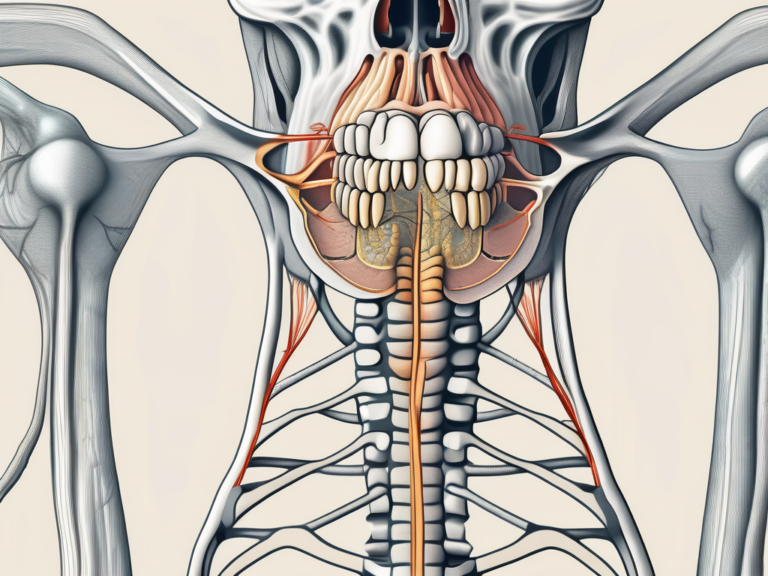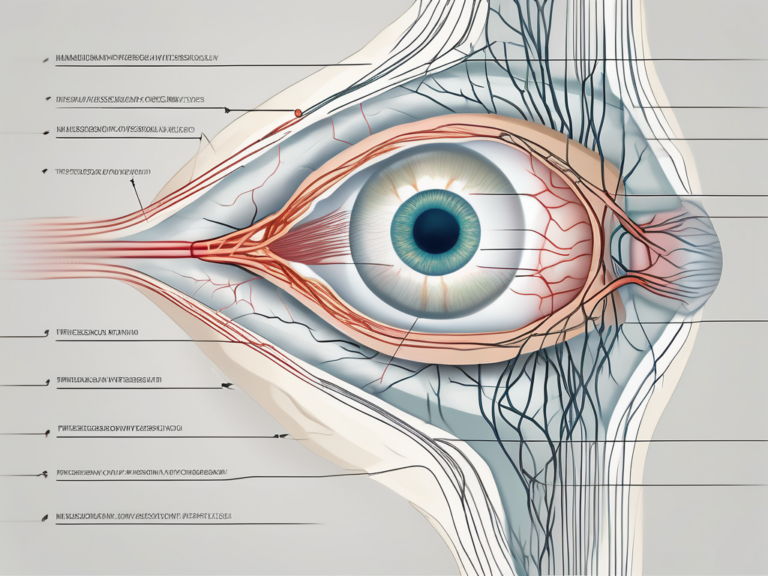The Top Brain Stimulators for Cognitive Enhancement
In today’s fast-paced and competitive world, our cognitive abilities play a crucial role in our success and overall well-being. From problem-solving and decision-making to memory retention and creativity, a sharp and agile mind is highly sought after. As a result, the concept of cognitive enhancement has gained significant attention in recent years. In this article, we will explore the top brain stimulators for cognitive enhancement, including natural approaches, technological advancements, and pharmaceutical options.
Understanding Cognitive Enhancement
Before diving into the various brain stimulators, it is essential to understand what cognitive enhancement entails. In simple terms, cognitive enhancement refers to the improvement of cognitive functions beyond what is considered normal or average. It aims to optimize the efficiency and effectiveness of our brain, allowing us to perform at our best in various cognitive tasks.
Delving deeper into the realm of cognitive enhancement reveals a fascinating landscape of possibilities. It encompasses not only the enhancement of memory and focus but also the augmentation of creativity, emotional intelligence, and decision-making abilities. By exploring the nuances of cognitive enhancement, individuals can unlock their full cognitive potential and achieve heightened mental acuity.
The Science Behind Cognitive Enhancement
The science behind cognitive enhancement is rooted in neuroplasticity, the brain’s ability to adapt and change in response to experiences. By engaging in specific activities, we can stimulate neuroplasticity and promote the growth of new connections between brain cells.
Moreover, recent research has shed light on the role of nutrition and lifestyle factors in cognitive enhancement. Consuming brain-boosting foods rich in antioxidants and omega-3 fatty acids, engaging in regular physical exercise, and practicing mindfulness techniques have been shown to positively impact cognitive function. These holistic approaches to cognitive enhancement emphasize the interconnectedness of mind and body in optimizing brain performance.
Furthermore, cognitive enhancement involves enhancing neurotransmitter activity, improving blood flow to the brain, and supporting neurogenesis, the formation of new neurons. This complex interplay of biological processes forms the foundation of cognitive enhancement techniques.
The Importance of Cognitive Enhancement
The importance of cognitive enhancement cannot be understated. In a world that demands constant learning and adaptation, having a sharper mind can lead to several benefits. Improved cognitive abilities can enhance our productivity, problem-solving skills, and creativity. They can also contribute to better memory retention and overall mental well-being.
As society continues to evolve in the digital age, the ability to adapt and thrive in complex environments becomes increasingly crucial. Cognitive enhancement equips individuals with the mental agility and resilience needed to navigate challenges and seize opportunities in a rapidly changing world. Embracing the journey of cognitive enhancement is not just about boosting brainpower; it is about empowering individuals to lead fulfilling and impactful lives.
Natural Brain Stimulators for Cognitive Enhancement
When it comes to enhancing our cognitive abilities, natural approaches can often be the first step. Below are two natural brain stimulators that have shown promising results in cognitive enhancement.
Dietary Changes for Cognitive Enhancement
Our diet plays a crucial role in our brain health and cognitive function. Certain foods and nutrients have been found to have positive effects on brain performance. For example, omega-3 fatty acids found in fish can improve memory and cognitive flexibility. Antioxidant-rich foods, such as berries and dark chocolate, have also been linked to enhanced cognitive function.
But let’s dive a little deeper into the world of dietary changes for cognitive enhancement. Did you know that incorporating leafy greens, like spinach and kale, into your diet can also have a positive impact on your brain health? These vegetables are packed with vitamins and minerals that support brain function, including folate and vitamin K. Folate helps in the production of neurotransmitters, while vitamin K is essential for maintaining healthy brain cells.
In addition to specific foods, maintaining a balanced diet, staying hydrated, and avoiding excessive alcohol and caffeine consumption can support optimal brain function. A healthy lifestyle that includes regular exercise and adequate sleep further complements dietary changes for cognitive enhancement.
Physical Exercise and Cognitive Enhancement
Physical exercise not only benefits our physical health but also has remarkable effects on our cognitive abilities. Engaging in regular aerobic exercise has been shown to increase the production of neurotrophic factors, which promote the growth and survival of neurons.
But did you know that strength training can also have cognitive benefits? It’s true! Strength training exercises, such as lifting weights or using resistance bands, can improve cognitive function by increasing blood flow to the brain and stimulating the release of endorphins, which are known to enhance mood and reduce stress.
Furthermore, exercise improves blood flow to the brain, ensuring the delivery of oxygen and nutrients necessary for optimal cognitive function. It also reduces stress and inflammation, both of which can impair cognitive abilities. Incorporating activities such as jogging, swimming, or even brisk walking into your routine can have significant cognitive benefits.
So, whether you choose to make dietary changes or engage in physical exercise, these natural brain stimulators can help enhance your cognitive abilities. Remember, taking care of your brain health is a lifelong journey, and incorporating these natural approaches can be a great starting point.
Technological Brain Stimulators for Cognitive Enhancement
In recent years, technological advancements have paved the way for innovative brain stimulators that can enhance cognitive function. Let’s explore two prominent options in this field.
Neurofeedback Devices for Cognitive Enhancement
Neurofeedback devices utilize real-time measurements of brain activity to provide feedback to the user. By observing their brainwaves, individuals can learn to regulate their brain activity and achieve a state of optimal cognitive performance.
These devices typically involve sensors placed on the scalp to monitor brainwaves, which are then displayed on a screen in real-time. Through exercises and training, users can learn to modify their brainwaves, leading to improved attention, memory, and overall cognitive abilities.
One fascinating aspect of neurofeedback is its application in treating conditions such as ADHD and anxiety disorders. By training individuals to control their brain activity, neurofeedback has shown promising results in reducing symptoms and improving cognitive function in clinical settings.
Transcranial Magnetic Stimulation (TMS)
Transcranial Magnetic Stimulation (TMS) is a non-invasive technique that involves the application of magnetic fields to specific regions of the brain. This stimulation can modulate neural activity and enhance cognitive function.
TMS has shown promise in various cognitive domains, such as memory, attention, and decision-making. The precise targeting of specific brain regions makes TMS a powerful tool for cognitive enhancement. However, it is important to note that TMS should only be administered under the guidance of trained professionals.
Another intriguing application of TMS is its potential use in the treatment of depression. Studies have indicated that repetitive TMS sessions can help alleviate symptoms of depression by stimulating neural circuits associated with mood regulation. This innovative approach offers a non-pharmacological alternative for individuals seeking relief from depressive symptoms.
Pharmaceutical Brain Stimulators for Cognitive Enhancement
In addition to natural approaches and technological innovations, certain pharmaceutical options can also contribute to cognitive enhancement. Here are two prominent options in this category.
Nootropics and Cognitive Enhancement
Nootropics, also known as “smart drugs,” are substances that aim to enhance cognitive function. They can improve memory, attention, creativity, and other aspects of cognitive performance. Some popular nootropics include Modafinil, Piracetam, and Ginseng.
It is important to approach nootropics with caution, as their effects can vary from person to person. Furthermore, it is advisable to consult with a healthcare professional before considering the use of any nootropic substance.
Nootropics work through various mechanisms in the brain, such as increasing neurotransmitter levels, improving cerebral blood flow, or enhancing neuronal function. Modafinil, for instance, is known to promote wakefulness and has been used off-label as a cognitive enhancer.
Prescription Medications for Cognitive Enhancement
Certain prescription medications have also been used off-label for cognitive enhancement purposes. For example, medications commonly prescribed for attention deficit hyperactivity disorder (ADHD) have shown cognitive enhancing effects in individuals without ADHD.
However, it is crucial to note that prescription medications should only be used under the guidance of a healthcare professional. Self-medication or misuse of prescription drugs can have serious consequences.
It is essential to understand that the effects of prescription medications for cognitive enhancement can vary widely among individuals. While some may experience improved focus and concentration, others may encounter side effects or minimal benefits. Therefore, a personalized approach under medical supervision is paramount.
The Future of Cognitive Enhancement
As research and technological advancements continue to progress, the field of cognitive enhancement is poised for exciting developments. Let’s explore two emerging trends in cognitive enhancement.
Emerging Trends in Cognitive Enhancement
One emerging trend in cognitive enhancement is the integration of virtual reality (VR) technology. VR environments can provide immersive experiences that stimulate cognitive functions such as memory, attention, and problem-solving. By merging virtual and real-world tasks, VR has the potential to enhance cognitive abilities in various domains.
Imagine stepping into a virtual world where you can practice public speaking in front of a virtual audience, or solve complex puzzles in a simulated environment. These experiences not only engage your cognitive abilities but also provide a safe space for experimentation and improvement. With VR technology becoming more accessible, the possibilities for cognitive enhancement are expanding.
Another emerging trend is the utilization of brain-computer interfaces (BCIs) for cognitive enhancement. BCIs allow direct communication between the brain and external devices, enabling individuals to control external devices using their thoughts alone. This technology has immense potential for individuals with cognitive impairments and could offer new avenues for cognitive enhancement in the future.
Imagine a world where individuals with paralysis can regain control of their limbs through the use of BCIs. By simply thinking about moving their arm or leg, signals from their brain are translated into commands that allow them to interact with the world around them. This not only enhances their cognitive abilities but also restores a sense of independence and freedom.
Ethical Considerations in Cognitive Enhancement
While cognitive enhancement offers promising possibilities, ethical considerations must accompany its development. Questions pertaining to fairness, access, and unintended consequences need careful evaluation. As cognitive enhancement technologies evolve, it is crucial to navigate these ethical dilemmas and ensure that they are used responsibly and equitably.
Ensuring equal access to cognitive enhancement technologies is essential to prevent exacerbating existing inequalities. It is important to consider the potential for these technologies to create a divide between those who can afford them and those who cannot. Additionally, unintended consequences, such as the potential for addiction or dependency, need to be carefully monitored and addressed.
Furthermore, ethical considerations extend to the responsible use of cognitive enhancement technologies. It is crucial to strike a balance between the desire for self-improvement and the potential risks associated with pushing our cognitive abilities to their limits. Responsible use involves understanding the limitations and potential side effects of these technologies, as well as being mindful of the impact they may have on our overall well-being.
In conclusion, cognitive enhancement is a field that holds great potential for optimizing our cognitive abilities. Natural approaches, such as dietary changes and physical exercise, offer accessible and effective means of cognitive enhancement. Technological brain stimulators, including neurofeedback devices and TMS, provide innovative ways to modulate brain activity. Additionally, pharmaceutical options, such as nootropics and prescription medications, can contribute to cognitive enhancement when used responsibly. As the future of cognitive enhancement unfolds, it is important to balance scientific advancements with ethical considerations. By harnessing the power of cognitive enhancement, we can unlock our full potential and thrive in an increasingly demanding world.






